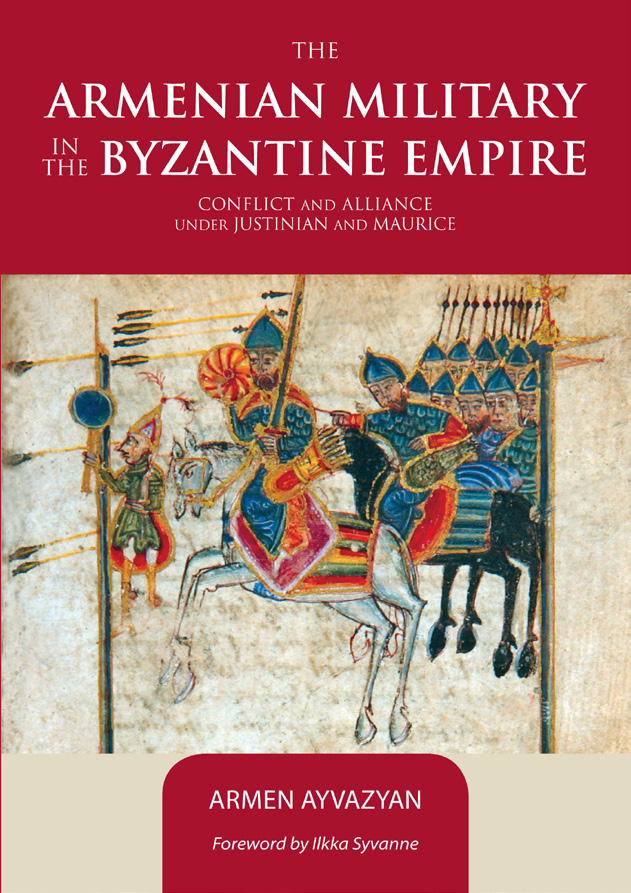
The Armenian Military Armen Ayvazyan Foreword by Ilkka Syvanne
“Dr. Ayvazyan has managed to perform an almost impossible |
|
|
5 offbeat questions to the author: 1) Who are you ? |
This book brings to light one of the least known, yet most turbulent periods in the history of the Armenian military and its complex relationship with the Byzantine Empire. In its first part, Armen Ayvazyan embarks on a military-historical analysis of the Armenian uprising against Emperor Justinian’s government in 538-539. While revealing and evaluating various tactical elements and stratagems employed by the Armenian forces, he carefully considers earlier and later evidence regarding their military operations, including both conventional warfare and high risk missions such as targeting killings of enemy commanders-in-chief and assassination plots against the heads of colonial administrations. And in the second part, Ayvazyan examines the Byzantine attitudes towards the Armenians and their armed forces, revealing, inter alia, that the underlying source for continuity of the anti-Armenian images with the analogous Roman tradition of prejudice was essentially geopolitical. Armen Ayvazyan (Aivazian) holds doctoral degrees in History (1992) and Political Science (2004). He is the author of many articles and books, including Mother Tongue and The Origins of Nationalism: A Comparative Study of the Armenian and European Primary Sources (2001); The Code of Honor of the Armenian Military, 4-5th centuries (2000, in Arm.); The Armenian Rebellion of the 1720s and the Threat of Genocidal Reprisal (1997). Dr. Ayvazyan was a Carnegie Corporation of New York/IREX fellow at Syracuse University, New York (1995); a Visiting Senior Fulbright Scholar at Stanford University (1997-1998); and a Visiting Alexander S. Onassis Foundation Fellow at ELIAMEP, Hellenic Foundation for European and Foreign Policy, Athens (2000-2001). |
| Editions SIGEST 29 rue Etienne Dolet – 94140 Alfortville – Tél.: 01 43 75 42 85 email : editions@sigest.net http://editions.sigest.net |
|